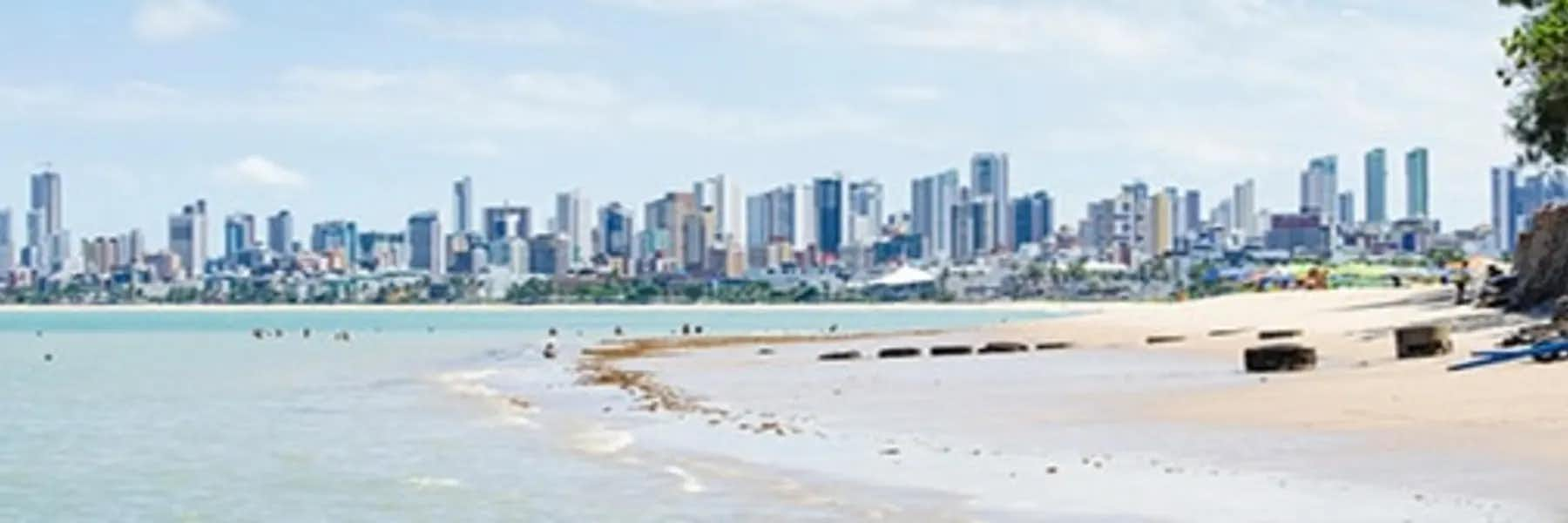I wake up before sunrise every day, dress, and go for my morning jog while it's still dark and the birds are about to start their morning calls. If I'm lucky I may see sagui monkeys or a flock of parrots while jogging by the edge of the Mata Atlântica reserve down the street. I finish my jog after sunrise as other joggers are starting to come out of their homes waving and wishing me a good day as usual.
I walk a lot here in the coastal Brazilian city of João Pessoa because almost everything I need is within walking distance. In general, Brazilians are very friendly and patient. They will go out of their way to help and talk to you. As I’m often reminded when neighbors drop in for a chat, invite me to barbecues, or offer rides when they see me walking around.
I live in a middle-class neighborhood called Cristo Redentor. In this neighborhood, you can find everything from three-plus-bedroom unfurnished houses with pool for $500 to two-bedroom unfurnished apartments for $150 a month. Electricity, gas, water, phone, food, internet and other necessities together will cost from $300 to $400 for a single person cooking most of their own meals.
When you don't feel like cooking you can have a neighborhood restaurant deliver a meal to your house for $4, or you can take one of the ubiquitous buses to downtown for $1 and get a meal with all the vegetables you can fit in your plate, two slices of meat and a lemonade for $3 to $7. You can also go to a seaside neighborhood and get local dishes with locally sourced seafood or a delicious Brazilian barbecue for about $10.
The government here provides many free services like language courses, group exercise classes, music concerts, open-air gyms, and health services. Yes, health services are free even for foreigners. Brazil’s governmental health program called Sistema Único de Saúde (SUS) will pay for most specialties, exams, and some meds once you have the SUS card. The rare things SUS doesn't cover, you can get through the many pharmacies or private clinics, with a doctor visit costing $20 to $40. The only complaints I have about the SUS are language and the occasional slowness. Most people, including doctors, don't speak English, so you have to find out how to describe everything in Portuguese beforehand. Also, a preliminary screening before you can request a specialty is required, and sometimes it may take anywhere from a day to a couple weeks between requesting and having the appointment scheduled.
There is lots you can do without spending much beyond equipment acquisition, like civic activities, coral diving, and windsurfing, among others. Besides that, you can join clubs for traveling, cycling, sailing, and orienteering for instance, and many travel agencies offer special tourism packages for people over 50. Of course, you can also just enjoy a calm day at the well-kept beaches and parks.
Some consider João Pessoa too calm, but a bus trip to Recife or Natal, two of the biggest cities in Brazil, takes about two hours and costs $15, so you can go for a trip in the “big city” or events like the famed Olinda Carnival and still sleep at home for the cost of a round trip.
Not everything is easy and cheap in João Pessoa. Getting legal information can be trying and some things like electronics can cost double what you would pay in the U.S., so buying abroad sometimes saves money.
All in all, João Pessoa is a great city. Years ago, I was anxious, stressed, and had to work a job that was damaging my health to make ends meet. The future seemed bleak and full of uncertainty. Now I live a carefree life that I could never afford in the U.S., and for that I am grateful to this city.
Related Articles
Cheapest Places to Live in the World
